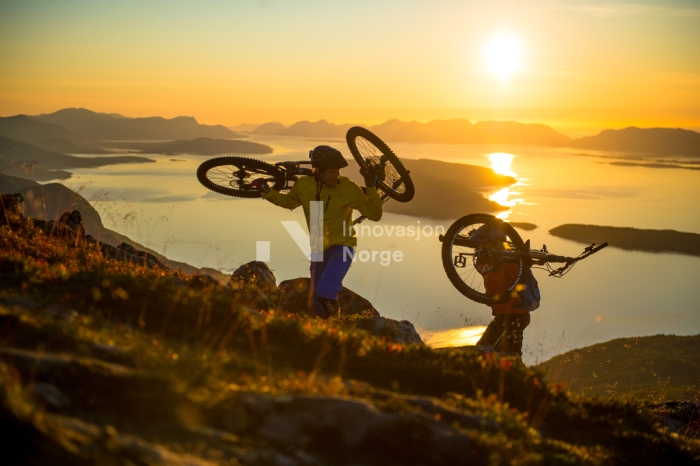कभी ज्यॉग्राफी की टीचर सबसे खड़ूस लगा करती थी, आज ट्रैवल की शक्ल में जिस ज्यॉग्राफी क्लास का अनुभव मिलता है, वो दुनिया में सबसे अजीज़ लगने लगा है। स्कूल में जब पहली बार मिडनाइट सन के बारे में सुना था तो वो अजूबा मुझे किसी और दुनिया का लगा था, जिस तक पहुंचने की कल्पना भी नहीं की जा सकती थी। फिर लॉन्गइयरबेन में छह महीने की अंधेरी, सर्द रातों की चुप्पी को हौल-हौले से तोड़ने वाले अप्रैल के पहले सूर्योदय के बारे में पढ़ा। तब तक मैें उम्र के उस मुकाम को पार कर चुकी थी जहां कल्पनाओं पर लगाम न कसो तो वो रोज़ चांद पर चढ़कर बैठ जाएं! और बस तभी से नॉर्डिक देशों के इस नन्हे बाल सूर्य को देखने की तमन्ना ने दिल में घुसपैठ कर डाली। तबसे जाने कितने अप्रैल भाग गए, कितने ही सूरज उग आए नॉर्वे में और ख्वाब बस आंखों में बैठा रहा, सब्र के साथ। अब गर्मी में आधी रात का सूरज बुलाने लगा है। ख्वाबों की मनमानी अब भी जारी है, देखें गर्मियों की आंधी कब-कहां उड़ाकर ले जाएं
The midnight sun is a natural phenomenon that occurs in the local summer months in places north of the Arctic Circle or south of the Antarctic Circle. 76 days of midnight sun between May and July greets travellers to Northern Norway.

76 days of midnight sun between May and July greets travellers to Northern Norway.
Like a prolonged sunset and sunrise all at once, the midnight sun colours heaven and earth in a reddish yellow light

It’s tempting to wonder about all the sights and experiences that have been made under the midnight sun through the ages – by people living off the sea at the Lofoten and Vesterålen archipelagos, or the Sami reindeer herders of the far north.
The earth is rotating at a tilted axis relative to the sun, and during the summer months the North Pole is angled towards our star. That’s why, for several weeks, the sun never sets above the Arctic Circle.
Going there, you can live these moments yourself: Doing a whale safari, or exploring the wilderness inland, takes on a new dimension at night in the summer months, when you literally get to see the nature and wildlife in a different light. If you’re not afraid of the sometimes chilly summer nights in the north, you could try a midnight swim – or you can pitch your tent in the wild and stay up while the sun doesn’t go down. Many sights and activities are open at night during these weeks, so you can do midnight golfing, cycling, river paddling or sea kayaking, or maybe just find a quiet spot to fish.
If you travel to the arctic islands of Svalbard, the sun doesn’t set between April and late August. Here you can do a midnight walk on a glacier or look at the reddish sky from a moving dogsled, experiencing the unique climate and nature near the North Pole.
The phenomena has at least made a lasting impression on several Norwegian artists and writers. This excerpt is from Knut Hamsuns Pan (1894): “Night was coming on again; the sun just dipped into the sea and rose again, red, refreshed, as if it had been down to drink. I could feel more strangely on those nights than anyone would believe”
Approximate dates when you can see the midnight sun:-
| Where | When |
| The Arctic Circle | 12 June – 1 July |
| Bodø | 4 June – 8 July |
| Svolvær | 28 May – 14 July |
| Harstad | 25 May – 18 July |
| Bardufoss | 23 May – 19 July |
| Andendes | 22 May – 21 July |
| Tromsø | 20 May – 22 July |
| Bossekopp | 19 May – 24 July |
| Vardø | 17 May – 26 July |
| Hammerfest | 16 May – 27 July |
| Berlevåg | 15 May – 28 July |
| The North Cape | 14 May – 29 July |
| Longyearbyen | 20 April – 22 August |
Images and information courtesy : Norway Tourism (http://www.visitnorway.com)
